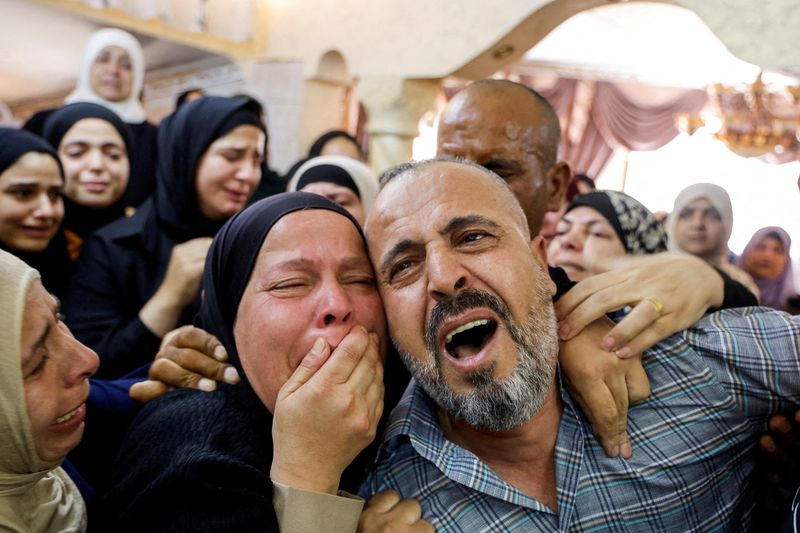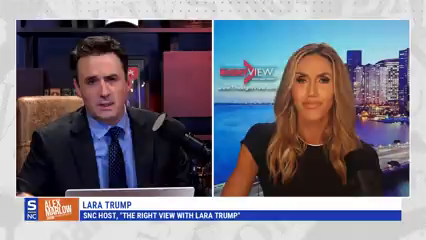Israel’s settlers see sanctions relief if Trump wins US election

By Jonathan Saul
JERUSALEM (Reuters) – Israel’s settlers are closely watching the U.S. election, a leader of the community said, expressing confidence that if Donald Trump wins he will lift what they see as illegitimate sanctions imposed on some of them for attacks on Palestinians.
As much of the world’s attention has focused on the war in Gaza, growing violence by Israeli settlers against Palestinians in the West Bank and land grabs in the occupied territory have raised concern among some of Israel’s Western allies.
Washington and others have imposed asset freezes and banking restrictions on violent settlers, outposts and groups and urged Israel to do more to stop attacks they say undermine efforts to end the conflict.
Israel Ganz, chairman of the main Yesha settler council who has close ties with Prime Minister Benjamin Netanyahu, described the sanctions as interference in Israel’s legal system that would ultimately cause problems for the government.
“If Trump takes the election, there will be no sanctions,” he told Reuters in an interview. “If Trump loses the election, we will in the state of Israel … have a problem with sanctions that the government over here has to deal with.”
Asked about the sanctions, a spokesperson for Netanyahu’s office declined to comment, while senior Trump campaign advisor Brian Hughes said “only President Trump will restore peace and stability in the Middle East for all people”.
Most countries deem Jewish settlements built on land Israel captured in the 1967 Middle East war illegal under international law and say their expansion blocks the only path to lasting peace – a viable Palestinian state alongside a secure Israel.
In 2019, the then-Trump administration abandoned the long-held U.S. position that the settlements are illegal before it was restored by President Joe Biden.
Ganz said the sanctions on settlers are unfair, because they are not matched by those on violent Palestinians, although Washington has tightened long-standing sanctions on Palestinian militant groups since the Oct. 7 Hamas-led attack on Israel.
“The sanctions hurt families and farms,” Ganz said, referring to agricultural settlement communities in the West Bank. Palestinians say such communities have already taken the best land from them and are set on taking more.
Twenty Palestinians were killed this year in attacks by settlers, according to a Palestinian Authority-affiliated organisation, among hundreds of Palestinians and dozens of Israelis reported killed in the West Bank by each side as Israel conducts raids against militants.
Both tolls include civilians and those engaged in combat.
Vice President and Democratic presidential candidate Kamala Harris has said extremist settlers should be held accountable for violent acts while also emphasizing that Israel has a right to defend itself against attacks. Her campaign team did not respond to a request for comment on Ganz’s statements.
Ganz heads the Yesha Council, which has overall responsibility for more than 500,000 people living in settlements – just over 5% of Israel’s population. That number has jumped from around 374,000 in 2013, Yesha data showed.
Many settlers believe Jews have a God-given right to live in territory they call by the biblical name Judea and Samaria.
Some in Israel’s ruling coalition, the most far-right in its history, support expansion of settlements and ultimately the annexation of the majority Palestinian territory.
Britain said earlier this month it was considering sanctions on Israel’s most powerful hardline public figures, Finance Minister Bezalel Smotrich and National Security Minister Itamar Ben-Gvir, after they reportedly said violent settlers were heroes and that starving Palestinians might be justified. Smotrich has said the comments were taken out of context.
Ganz said countries had no right to meddle in Israel’s democracy.
“When you sanction ministers, you mean you change the election (results) here. You change what the people here want.”
(Reporting by Jonathan Saul in Jerusalem, additional reporting by Ali Sawafta in Ramallah, Trevor Hunnicut and Gram Slattery in Washington; Editing by Michael Georgy and Philippa Fletcher)









